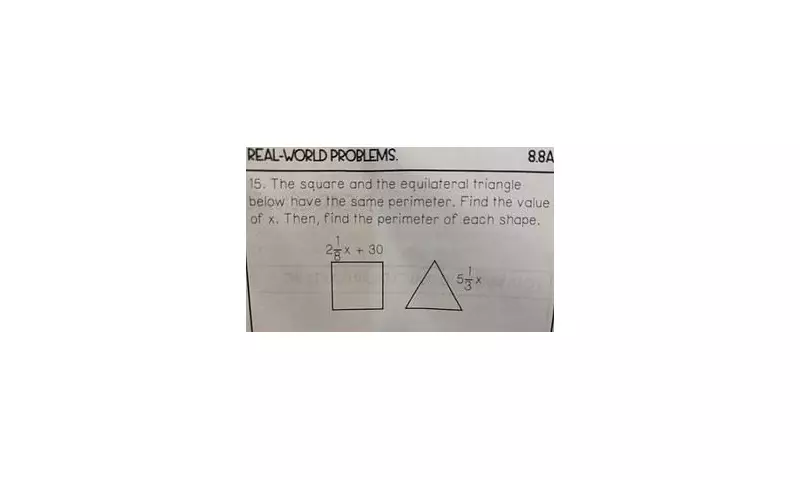
A seemingly straightforward maths problem designed for 12-year-old students has sparked a major online debate, leaving countless parents scratching their heads and questioning their own numeracy skills.
The homework question, which has since gone viral on social media, appears deceptively simple at first glance but has proven to be a genuine head-scratcher for adults across the UK.
The Problem That Broke The Internet
At the heart of the controversy is a maths puzzle that asks students to calculate a missing value based on a pattern of equations. What makes it particularly tricky is its departure from standard mathematical notation, requiring lateral thinking rather than straightforward arithmetic.
Many parents who attempted to help their children with the assignment found themselves unexpectedly stumped, turning to online forums and social media platforms for solutions and support.
Why This Puzzle Is So Tricky
Educational experts suggest the problem's difficulty stems from its requirement for logical reasoning rather than simple calculation. Unlike traditional maths homework that tests multiplication or division skills, this puzzle challenges students to identify patterns and relationships between numbers.
This approach aligns with modern teaching methods that emphasize critical thinking and problem-solving strategies over rote memorization of formulas.
The Social Media Frenzy
As frustrated parents took to platforms like Facebook and Twitter to share their bewilderment, the puzzle quickly gained viral status. The online discussion has generated thousands of comments, with users proposing different solutions and debating the correct approach.
The phenomenon highlights how homework assignments in today's digital age can quickly become communal puzzles, with parents across the country collaborating to find solutions.
What This Reveals About Modern Education
This incident sheds light on the evolving nature of primary education in Britain, where curriculum changes have introduced more complex problem-solving exercises at earlier ages. While some parents have expressed frustration with these developments, educators argue that such challenges better prepare children for real-world problems that require flexible thinking.
The debate has also raised questions about the gap between traditional mathematical teaching methods and contemporary approaches that emphasize conceptual understanding over procedural knowledge.
Whether you've managed to solve the puzzle or remain completely baffled, one thing is clear: the humble maths homework assignment still has the power to bring adults to their knees and create viral internet moments.





